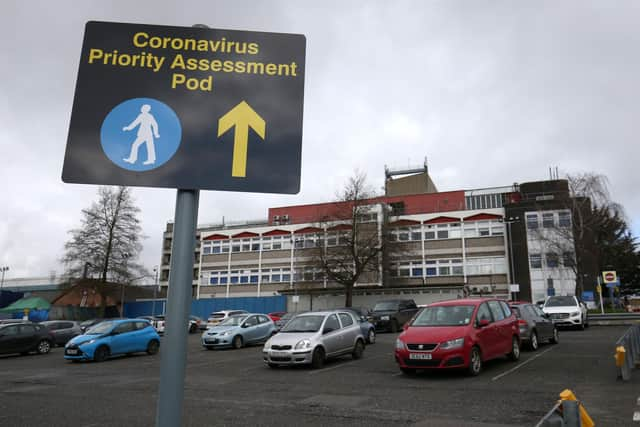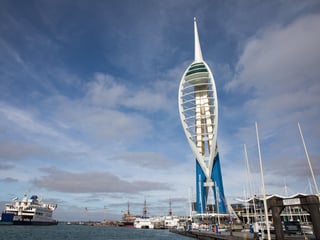Coronavirus: Death toll in UK rises to 35 as 1,372 test positive
and live on Freeview channel 276
The Department of Health said 14 more patients have died in England after testing positive for Covid-19. This follows the 10 deaths announced on Saturday.
A total of 34 people have died from the virus in England, while there has been one death in Scotland.
Advertisement
Hide AdAdvertisement
Hide AdNHS England said the patients whose deaths were announced on Sunday were aged between 59 and 94, and they had underlying health conditions.


They were being cared for at the following: Havering and Redbridge University Hospitals NHS Trust, Epsom and St Helier University Hospitals NHS Trust, George Eliot Hospital NHS Trust, Guy's and St Thomas' NHS Foundation Trust, Manchester University NHS Foundation Trust, Mid Essex Hospital Service NHS Trust, Nottingham University Hospitals NHS Trust, North Manchester General Hospital, The Royal Wolverhampton NHS Trust, Tameside and Glossop Integrated Care NHS Foundation Trust, Dudley Group NHS Foundation Trust and University Hospitals Bristol NHS Foundation Trust.
There have been a total of 1,372 positive tests for coronavirus in the UK as of 9am on Sunday, up from 1,140 at the same time on Saturday, the DoH said.
Health Secretary Matt Hancock said people aged over 70 will be asked in the coming weeks to self-isolate for up to four months, in order to protect them from the virus.
Advertisement
Hide AdAdvertisement
Hide AdAsked if that time frame was in the Government's plan, he told Sky's Sophy Ridge On Sunday: ‘That is in the action plan, yes, and we will be setting it out with more detail when it is the right time to do so, because we absolutely appreciate that it is a very big ask of the elderly and the vulnerable, and it's for their own self-protection.’
Pressed on when the measure will be introduced, he said: ‘Certainly in the coming weeks, absolutely.’
Mr Hancock added: ‘The measures that we're taking, the measures that we're looking at taking, are very, very significant and they will disrupt the ordinary lives of almost everybody in the country in order to tackle this virus.’
He also confirmed that ministers were seeking to give police powers to arrest and forcibly quarantine people who are sick with the virus but are not self-isolating.
Advertisement
Hide AdAdvertisement
Hide Ad‘We are going to take the powers to make sure that we can quarantine people if they are a risk to public health, yes, and that's important,’ he told The Andrew Marr Show on the BBC.
SEE ALSO: How to get tested for coronavirus
‘I doubt that actually we will need to use it much, because people have been very responsible.’
Prime Minister Boris Johnson will personally urge manufacturers to shift their production lines to build ventilators, amid concerns that critical care facilities will come under intense pressure as the Covid-19 crisis intensifies.
Mr Hancock said: ‘The thing the NHS needs now more than anything else is more ventilators. We've been buying as many as we can but we need to produce more too.’
Advertisement
Hide AdAdvertisement
Hide AdHe said he could not make guarantees that everyone who requires a ventilator will get one, saying: ‘We don't make guarantees in healthcare.’
Engineers have already been asked to draw up plans to quickly produce more ventilators in the UK, with JCB confirming it had been approached by the Prime Minister regarding the production of such equipment.
The Health Secretary said a Bill setting out emergency powers to deal with the outbreak will be published on Thursday, and details of what the powers will include will be shared on Tuesday.
Mr Hancock said ministers are yet to make a decision on whether to ban gatherings of more than 500 people in the rest of the UK, after Scotland said it would bring in restrictions from Monday.
